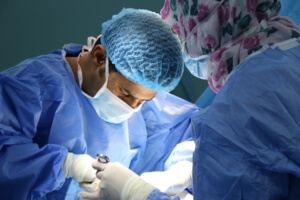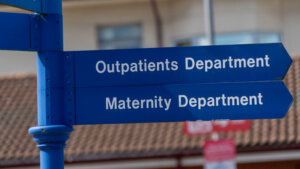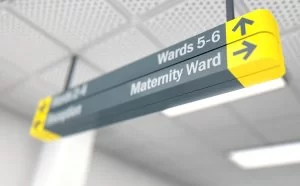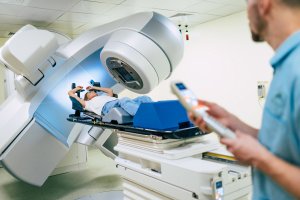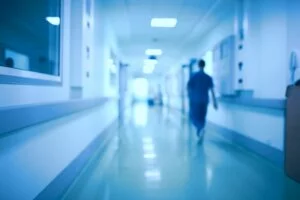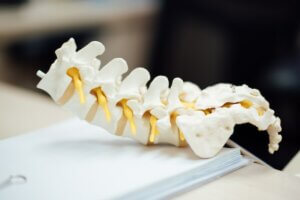What Is the Role Of a Physician Associate?

Contact
Table of Contents
What does the Position of Physician Associate Mean for the NHS?
There are many different jobs within the NHS, each and every one of them offering a unique experience to those fulfilling these roles, one of these being the role of a physician associate. According to the NHS website, physician associates, “work in a GP surgery or are based in a hospital” and their responsibilities are typically: taking medical histories from patients, performing physical examinations, diagnosing illnesses, seeing patients with long-term chronic conditions, performing diagnostic and therapeutic procedures, analysing test results, developing management plans and providing health promotion, and disease prevention advice for patients.
Physician Associates must not be confused with doctors
Their role in the NHS is sometimes confused with that of a doctor or junior doctor, though they do not have the same authority and responsibilities of a doctor or junior doctor; for example, they are not allowed to order x-rays nor prescribe medicine to patients. To ensure that patients are aware of this separation, physician associates wear distinct badges or lanyards clearly marked with their role, and they are required to inform the patient of their job title. One physician associate, Sammy Chan, said, “I always explain and introduce myself to everyone, I say, ‘I’m a physician associate. While I work alongside doctors and nurses, I’m not a doctor, but I am medically trained to do certain things. And I can help provide some care.’”
Their role in the NHS is vital nonetheless, with their assistance being essential to assist junior doctors as the number of junior doctors and the workload at the NHS means that any help from additional staff members is appreciated.
However, what does the influx in Physician Associates mean for the patients?
The training for a physician associate is significantly less time than a doctor and this fact could have ramifications on NHS patients. A doctor in the NHS will complete five years of medical school before undertaking a further two years of placement before they can qualify as an NHS doctor. Physician associates, on the other hand, complete two years of training and 1600 hours of clinical training (the equivalent of just over two months) before they can be qualified as a physician associate. This stark difference in training causes some worry amongst frontline medics with concerns about how physician associates will need to be monitored by senior members of staff and that these plans seem to be, “ alarming and unsafe”.
Furthermore, the distinction between the physician associates and regular doctors can be difficult for patients to distinguish for a patient, Emily Chesterton, unfortunately died after believing the physician associate she was consulting about calf pain was a doctor. After her death, the coroner concluded that had she been sent to a hospital after her initial GP appointment, instead of being sent home with paracetamol, she would have most likely survived. Only after this tragic case were physician associates required to explicitly tell patients their title.
Doctors Association UK state that they believe confusion and possible exploitation of doctors and physician associates could, “compromise patient safety”.
Is the role of Physician Associate beneficial for both NHS and patients?
Overall, it is hard to make an accurate conclusion as to whether the rise in physician associates will be beneficial for both the intense workload of the NHS and the insurance of patient safety. The Catch-22 of physician associates is that whilst they can reduce the workload of junior doctors by taking on smaller jobs, they take up the time of senior staff members as they need to be monitored due to their lack of medical training, this lack of training potentially having negative effects on patient safety.
Contact Osbornes Law
If you’ve suffered due to poor medical care, our Medical Negligence solicitors are here to support you. Contact Osbornes Law by filling out the form below. Our expert solicitors will be able to guide you through the NHS complaints process and advice you on whether or not a claim for medical negligence is possible.
Share this article
“Small but very effective and experienced team so every client benefits from the personal touch but also highly skilled litigation know-how. Capability of the team means they can handle all aspects of very complex cases as well as straightforward matters.”
“Osbornes Law is an established firm which handles a breadth of complex and high-value clinical negligence matters.”
Contact us today
Call us 020 7485 8811
Email us Send us an email and we’ll get back to you
Osbornes has a skilled team of solicitors advising clients on a wide range of clinical negligence matters.
Hard working, approachable, good knowledge of clinical negligence and clients’ specific conditions
A joy to work with and always 100% client focused at all times.
The clinical negligence team at Osbornes is much lauded for its ability to ‘represent the diverse range of London-based clients
‘They are ambitious for their clients and expect high standards from all who work with them.’
"Osbornes somehow combine the accessibility of a local firm, with the professional standards of a national or city outfit."
"Osbornes, is described as having ‘superb judgement and a medical knowledge that is second to none."
They are an excellent firm who achieve fantastic outcomes for their clients. They are also very prominent in injuries to those travelling to or from Europe. Multiple languages are spoken by the team.
Stephanie Prior is a first-rate clinical negligence specialist whose industry, great experience and medical background put her in an exceptional class.
This firm is responsive and efficient. Their rapidity in dealing with complications or hiccups is excellent.
Really great clinical negligence practice, staffed by experienced practitioners who know how NHS Trusts work. They also build great rapport with clients.’
Stephanie has developed a particularly strong reputation for her handling of birth injury claims, as well as cases concerning surgical negligence and delays in surgery.
"An excellent firm which achieves fantastic outcomes for clients."
"Stephanie Prior takes on complex cases and gets excellent results. She has a background in medicine which serves her clients well and is a realistic but tough litigator."
"Stephanie Prior is hugely dedicated, adored by her clients, tenacious, efficient and extremely knowledgeable."
"Stephanie Prior is very good with troubled clients and is easily able to make them feel at ease."
"Stephanie shows sensitivity and deals with things in an understanding way."
Osbornes provides a very intimate and personal client service which is increasingly rare in this sector.
The lawyers in the team are highly experienced and will drive cases very hard on behalf of their clients.
"Stephanie Prior has a realistic attitude to the complexities of the cases. She wins the trust of her clients and goes the extra mile to ensure they get the best outcomes."
"Stephanie Prior... manages a varied caseload, including obstetric claims, child and adult brain injury cases and fatal and non-fatal spinal cord injury cases."
"Stephanie is experienced, knowledgeable of all aspects of clinical negligence work, and strategic in running cases."
"The team were extremely professional in putting my needs first. There was a joined-up approach to catering for the client, and all lawyers involved were briefed and constructive."
Stephanie Prior is always very professional and kind. Highly recommended.
Quite simply excellent, with a highly competent and well-rounded team. They understand complex medical litigation and have been our lifesavers, and we will always owe them our immense gratitude.
More from JodiVIEW ALL
- 10.7.2025
Osbornes Law Secures £700K in Crohn’s Negligence...
Negligent delay in diagnosing Crohn’s disease leads to £700K settlement Jodi Newton, Partner, was instructed in a case against...
Read more - 12.5.2025
Complaints Against Suspended Surgeon Ms Kuldeep Stohr
Ms Kuldeep Stohr, orthopaedic surgeon at Addenbrooke’s Hospital suspended In February 2025, Cambridge University Hospitals NHS Foundation Trust (CUH) confirmed...
Read more - 6.5.2025
Six-Figure Settlement for Negligent C-Section Delivery
Osbornes secures a six-figure settlement following a negligent caesarean section delivery Jodi Newton, Partner and head of our Obstetric and...
Read more - 13.3.2025
Addenbrooke’s Hospital Complaints
Review finds harm to children by surgeon at Addenbrooke’s Hospital An independent review by Cambridge University Hospitals NHS Foundation...
Read more - 14.10.2024
Multi-Million Settlement in Cerebral Palsy Negligence Case
Judge awards multi-million settlement in cerebral palsy medical negligence claim Jodi Newton, Partner and specialist medical negligence lawyer at Osbornes...
Read more - 12.9.2024
Great Ormond Street Hospital Negligence & How to Claim
Review of negligence at Great Ormond Street Hospital At Osbornes Law, we’ve supported families through some of the most...
Read more - 29.8.2024
AB v Central London Community Healthcare NHS Trust
Background Our client, AB, had been using the Nexplanon contraceptive device for 6 years. She had a Nexplanon device inserted into...
Read more - 9.5.2024
Claim Against Royal Free London NHS Foundation Trust...
Client obtains settlement after being victim of a surgical negligence Jodi Newton, Partner in our Clinical Negligence department, recently settled...
Read more - 11.1.2024
New UK Supreme Court Ruling regarding Secondary Victims...
The Supreme Court has today, on the 11th January 2024, upheld the Court of Appeal’s order to dismiss the claims...
Read more - 11.1.2024
Secondary Victim Claims
Secondary victims in clinical negligence cases What is a secondary victim in clinical negligence cases? Most compensation claims are concerned...
Read more - 12.12.2023
NHS Compensation Payouts Guide
What Are NHS Compensation Payouts? In the UK, the National Health Service delivers the vast majority of healthcare services. When...
Read more - 21.9.2023
Large Compensation for Delayed Laryngeal Cancer Diagnosis
Actress receives financial award after life-changing missed cancer diagnosis. Jodi Newton acted for a client who was belatedly diagnosed with...
Read more - 21.9.2023
Delayed cervical cancer diagnosis client story
Introduction Jodi Newton acted for a woman who died following a delayed cervical cancer diagnosis. The deceased could have been...
Read more - 19.9.2023
Appendicitis Compensation Claim
Appendicitis misdiagnosis case settles for 5-figure sum Osbornes Law were instructed in a medical negligence claim against Bedfordshire Hospitals NHS...
Read more - 19.9.2023
Spinal Fracture Case Settles for 6-figure Sum
Spinal Fractures following cessation of Denosumab injection Case Overview Stephanie Prior was instructed in a spinal injury claim against Mid...
Read more - 31.8.2023
Can you sue the NHS for waiting times?
The NHS is facing an unprecedented challenge with 7.47 million people waiting for routine treatments. This crisis impacts everyone, from those...
Read more - 31.8.2023
Hyponatraemia – Symptoms, Causes & Negligence
What is hyponatraemia? Hyponatraemia is a condition where sodium levels fall below a certain level, which can be dangerous. All...
Read more - 10.8.2023
Ambulance Delays Affecting Rapid Patient Treatment
Failure to Meet Ambulance Response Targets In 2017, the Secretary of State for Health accepted the new ambulance performance standards recommended...
Read more - 1.8.2023
Bowel Ischaemia Fatality – Client Story
Jodi Newton, a Partner in the Clinical Negligence Department at Osbornes Law, has recently settled a long running fatal medical...
Read more - 26.7.2023
Private Healthcare Negligence
Can you claim medical negligence against a private hospital? Yes – it can be a little more complicated than bringing a...
Read more - 9.6.2023
Early Notification Scheme – is it helping or failing...
What is the Early Notification Scheme? The NHS Early Notification Scheme (“ENS”) has reached its sixth anniversary. Established in April 2017,...
Read more - 23.3.2023
Private Pregnancy Scans and Substandard Care
In the news, it has been reported that private clinics that offer pregnancy scans to women are not meeting the...
Read more - 9.2.2023
Perineal tear claim settles for 6-figure sum
Successful claim for mother with third-degree perineal tear Osbornes Law recently settled a birth injury claim for a woman who...
Read more - 14.12.2022
Successful settlement for negligent care during kidney transplant...
Claimant v Royal Free London NHS Trust Osbornes have reached a settlement agreement on behalf of a Claimant who brought...
Read more




